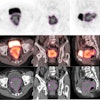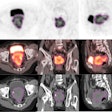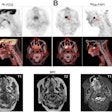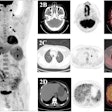Women being treated for ductal carcinoma in situ (DCIS) are at higher risk of developing malignant tumors if they do not receive timely radiation therapy, according to research presented at the American Association for Cancer Research (AACR) meeting in New Orleans.
Primary treatment options for DCIS include breast-conserving surgery plus radiation, total mastectomy, and breast-conserving surgery alone, said lead author Dr. Ying Liu, PhD, of Washington University School of Medicine in St. Louis. However, the team's research shows the importance of women undergoing radiation therapy within eight weeks of breast-conserving surgery.
The group identified 5,916 women from the Missouri Cancer Registry who were diagnosed with first primary DCIS between 1996 and 2011 and were treated with breast-conserving surgery. Of those women, 17.8% (1,053) received radiation therapy eight or more weeks after surgery, which Liu and colleagues defined as delayed.
In addition, 28.8% (1,702) did not receive any radiation therapy during the first course of treatment, while the remaining 53.4% of women underwent radiation therapy within eight weeks of surgery.
Over a 72-month follow-up period, 3.1% of the women developed an invasive or in situ tumor on the same side as the DCIS. After adjusting for factors such as age, race, tumor size, and tumor grade, the researchers found that the risk of developing these tumors was 26% higher for women who had delayed radiation therapy and 35% higher for women who did not receive any radiation therapy during the first course of treatment.
Delays were more likely for certain groups, including African-American women, single women, those who received Medicaid, and those whose DCIS tumors were larger, Liu and colleagues reported.
"Our preliminary finding needs to be confirmed in a large cohort of DCIS patients with a longer follow-up," Liu said in a statement released by AACR. "Future studies should also address the contributions of patient choice, healthcare providers, facilities, and neighborhoods to therapy delay."


















